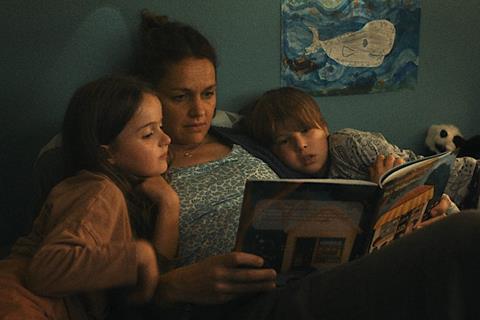Veronika Hafner confidently handles delicate themes in her Munich-set family drama

Dir: Veronika Hafner. Germany. 2025. 107mins
Twenty-something student Lukas (Jonas Holdenrieder) is close to his older sister Mara (Luise Heyer) and is adored by her two young children. Then Lukas drops a bombshell, confiding in Mara that he is a paedophile who is attracted to very young girls. Mara struggles not to condemn him outright, but looks at him with new, searching eyes that can’t quite see past his confession. Veronika Hafner’s Munich-set debut film handles its hot-button themes with restraint and, for the most part, sensitivity, peeling away the instinctive revulsion that surrounds Lukas’s inclinations to reveal a pitiable individual rather than a monster.
Performances are nuanced and satisfyingly complex
Obhut – the title translates as custody, guardianship or care – screens in Hamburg following its premiere in Zurich competition. It’s an uncomfortable drama that questions the behaviour of Mara as well as that of Lukas, telling the story from the viewpoints of both siblings. There are thematic similarities with Sarah Miro Fischer’s Berlinale Panorama premiere, The Good Sister: both deal with sibling relationships and tested loyalties following a revelation about the brother. But resistance to paedophilia as a theme, plus the film’s solid but formally conventional approach, might mean that Obhut could struggle to find much traction theatrically, outside of German-language territories.
Lukas knows what he is, and he also knows that it is wrong. He is in therapy to tackle his urges and has set himself certain boundaries that cannot be transgressed. He keeps his affectionate niece at a distance and seems visibly uncomfortable when she embraces him; he is not attracted to her, but he is terrified that at some point he might be. Elsewhere, he avidly watches a pre-teen influencer’s content – he tells himself that it’s harmless but a scene towards the end of the film emphasises, emphatically, the queasiness of a grown man mooning over a child’s YouTube channel.
Mara’s actions can also be seen as morally ambiguous. She is well-intentioned, for example, when she sets up a surveillance camera in the locker room of the juvenile boys soccer team that Lukas coaches. But in assuaging her own doubts about her brother, she invades the privacy of a group of children. She feels that she is doing her duty as a co-parent when she confides in her ex-husband but, in doing so, she betrays her brother’s trust and sets in motion a chain of damaging events.
The film walks something of a tonal tightrope. It does not require us to sympathise fully with Lukas but asks that we at least do not reject him out of hand. But the intellectual balance is not always matched by the filmmaking. There are jarring moments in which the sound design and score seem better suited to an overwrought genre movie than to an intimate domestic drama.
Fortunately, the performances are nuanced and satisfyingly complex. As Lukas, Holdenrieder creates a character at war with himself, his self-loathing and pain balanced against a slightly petulant undercurrent of victimhood. And Mara, with her glued-on smile that does not quite mask her panic and uncertainty, is a loving sister and mother, but also an overbearing and controlling presence in the lives of her family members. But for all this, the film finds a final note of hope for a future reconciliation between brother and sister.
Production company: Elfenholz Film GmbH
Contact: Elfenholz Film info@elfenholzfilm.de
Producers: Natalie Hölzel, Sandra Hölzel
Screenplay: Veronika Hafner, Christian Hödl
Cinematography: Holger Jungnickel
Production design: Lugh Wittig
Editing: Nanette Foh
Music: Michael Lauterbach
Main cast: Jonas Holdenrieder, Luise Heyer, Laura Köpplin, Lion Heiduk, Felix Hellmann, Morena Klotzbier, David Nolden, Şafak Şengül, Felicia Chin-Malenski, Vanessa Eckart















![[L-R]: Amanda Villavieja, Laia Casanovas, Yasmina Praderas](https://d1nslcd7m2225b.cloudfront.net/Pictures/274x183/6/4/1/1471641_pxl_20251224_103354743_618426_crop.jpg)








